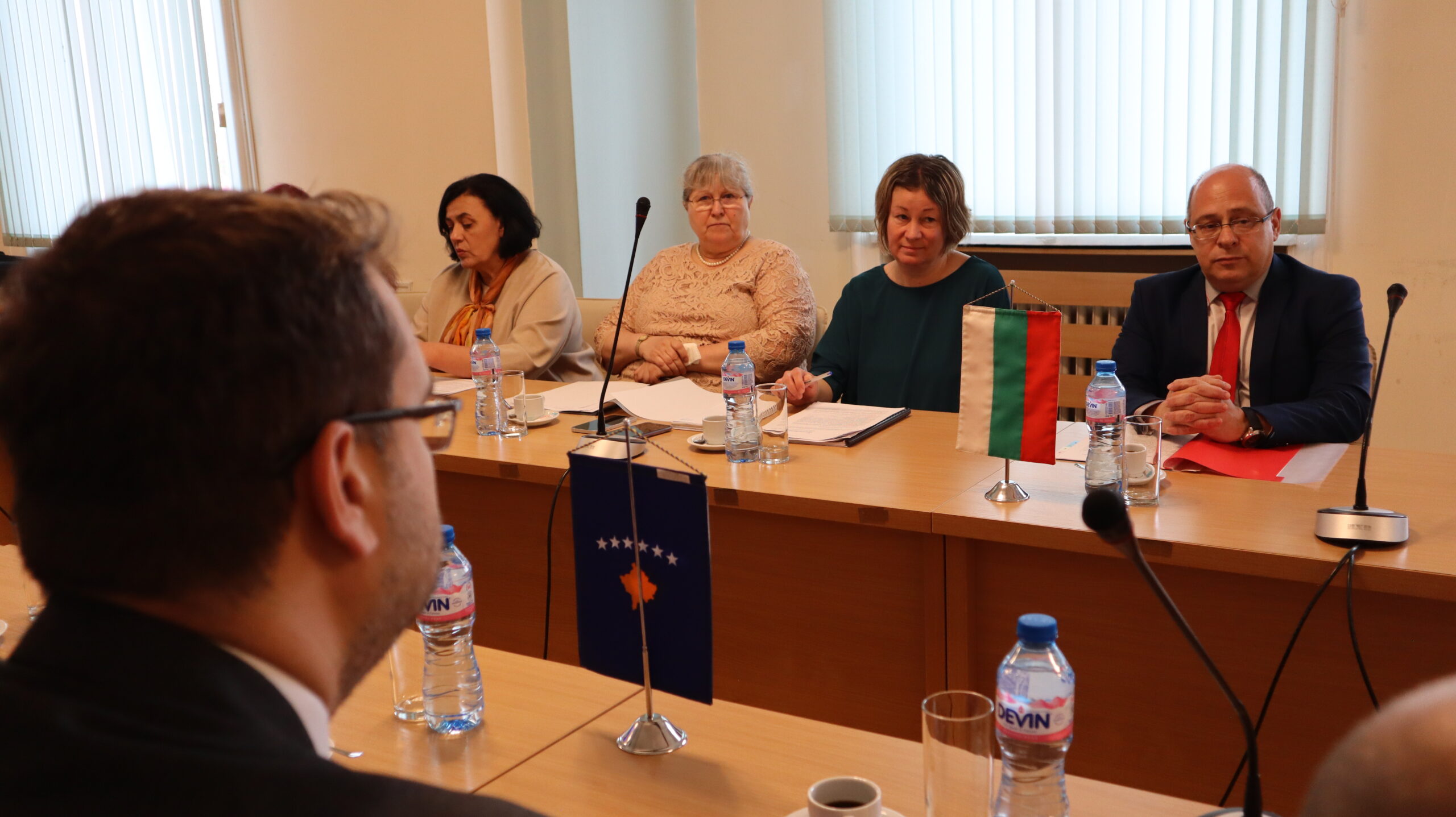The working group for drafting the Regulation for the Contracting of CSO Services, composed of members from public institutions and civil society, was on a two-day study visit to Sofia, Bulgaria.
This study visit aimed to explore the mechanisms of contracting services for Civil Society Organizations (CSOs) in Bulgaria, as this issue is well-regulated in Bulgaria. Understanding Bulgarian experiences and practices has been considered to help update the secondary legislation for which this group has been working in recent months.

During the two-day visit, the working group met representatives from the central level, Mr. Lazar Lazarov, Deputy Minister of Labor and Social Policies, who emphasised that the reform in the field of social services is among the priorities of social policy in Bulgaria and its effective implementation would not be possible without the active cooperation and constructive dialogue between all interested parties. Experts from the Ministry of Labor and Social Policies (MPPS), the Agency for Social Assistance (ASP), and the Agency for the Quality of Social Services (AKSU) also participated in the meeting. They presented the main principles in the Social Services Act, which is the basis of the reform of this sector.
The visit was followed by a meeting with the local level, where the working group was received by Mrs. Nadezhda Dimitrova Bacheva, Deputy Mayor of the Municipality of Sofia, who emphasised how social services are contracted from the local level to meet the needs of the citizens of the Municipality of Sofia.
At the end of the first day, the Embassy of Kosovo hosted the working group in Sofia. During the meeting, Mr. Haxhi Bajraktari, the Ambassador of Kosovo in Sofia, spoke about the close cooperation with the Bulgarian authorities and the importance of our Embassy for coordination and lobbying in many areas of interest. Also, the Embassy of Kosovo in Sofia has been a mediator in organising these meetings with the institutions on local and central levels in Bulgaria.
The second day of the visit was dedicated to meetings with non-governmental organisations. Respectively, with SOS Children’s Village in Sofia and Concordia Bulgaria, who presented their work and challenges in the field, as well as their experiences during the application process to provide social services. The SOS Children’s Village emphasised how the legislative reforms have affected the quality of work and, consequently, the quality of life for children and families at risk. The colleagues from Concordia Bulgaria explained more in detail the cooperation with local institutions, the financing mechanisms, and the opportunities the delegated budgets offer for social services. After the discussion, the working group had the chance to see some of the activities of the Concordia Social Enterprise, specifically the candle and pottery workshop, which provides employment opportunities for young people from vulnerable groups.
Considering these two perspectives—that of the government and that of non-governmental organisations—has undoubtedly contributed to the enrichment of a detailed understanding of this issue of great interest to the working group.
The study visit to Bulgaria was organised by the Civikos Platform with support from the HumanRightivism project and financed by the Swedish Embassy in Pristina through the Community Development Fund (CDF). It was also coordinated with the Национална мрежа за децата—National Network for Children Bulgaria, our Bulgarian counterpart.
